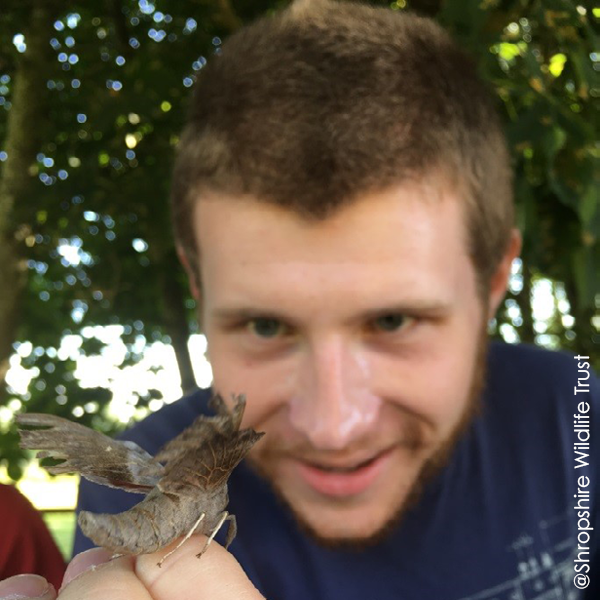“Society in general benefits from giving young people the skills, giving young people the opportunities in conservation and the environmental sector, the opportunity to take leadership roles.”
Laurence grew up in Shropshire. He considered himself lucky, growing up in a nice home with a good family. Laurence remembers spending a lot of time reading books as a child. Despite his fond memories of his upbringing, Laurence also felt there was something “that was always bubbling away in the background” for him. In his early adulthood he was eventually diagnosed with clinical anxiety – something he describes as always having “making it a little difficult for [him] to settle into social groups or meet new people”. Laurence also recalls being bullied growing up, something which, combined with his anxiety, made it more challenging for him to try new things which he felt caused him some limitations throughout his youth and early adulthood. It was in his second year of university that Laurence notes his anxiety which had always been “on the periphery”, becoming a daily struggle, causing him to feel in a state of disarray and doubt the plans he had for the future.

“Anything that sounded like it might be practical, I tended to avoid. Anything that sounded like it might attract the kind of people who I didn’t get on with, who had bullied me for example, I avoided.”
In 2016, Laurence began getting involved with Our Bright Future through the Shropshire Wildlife Trust’s ‘Growing Confidence’ project where he participated in practical work on nature reserves, assisting with land management activities such as removing and growing trees to protect environments and hedge laying. Over the course of the first 12 months of the project, Laurence’s confidence and interaction with others developed to the point where he often found himself helping younger members of the group – something he explains he “quite enjoyed… [but] hadn’t expected at all”. His involvement in the project led to him exploring other projects with the Field Studies Council and a community owned farm. Laurence’s passion for the projects, and more widely for the environment grew, and when the Covid pandemic began impacting these projects, Laurence worked with staff to explore ways the projects could adapt.
“I came to value the things that I am able to do more, and the changes I am able to make more.”
The experience Laurence had gained in working with others had developed his skills around communication, explaining ideas and teaching others. He describes growing interests in working within environmental education and scientific journalism. Having started the Growing Confidence project, Laurence worked hard to get his degree back on track and graduated with a Degree in Geology and Biology. Laurence expects that had he not stepped out of his comfort zone and participated, he would likely be “still be having the kind of greater anxiety and confidence issues that [he] had at the time… turning things down on the basis of the fact that I might not enjoy them, rather than just trying them.”
Through his time with Growing Confidence, Laurence also went on to become a youth representative on the Our Bright Future Steering Group. Significantly, Laurence feels without his involvement in the project and wider Our Bright Future opportunities, he would be struggling with the direction he would like his life to go in and “struggling for lack of ideas, or lack of motivation rather than choosing between interesting opportunities, which is what [he’s] doing at the moment.”
“Things that are more linked to engagement, education, that kind of thing are probably where I’m headed now.”
Laurence is passionate about sharing knowledge around the environment and empowering others to engage with the environment in a way that will contribute to the improvement of nature. He would like to see a world where more people understand and are empowered to take action for the long-term good of nature, humanity and the planet.
He cites Our Bright Future as giving him the confidence to make changes to his own behaviour and lifestyle, but also for empowering him to realise his strengths in leadership and engaging others to do the same.
“We’re sort of encouraged as a society to pursue short-term financial gain regardless of what the consequences of that might be regardless of whether that destroys things that we value, destroys natural environments, animals, plants, ecosystems that we value. Whether it makes people’s lives, even our own, difficult in the long-term.”
